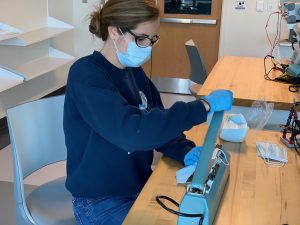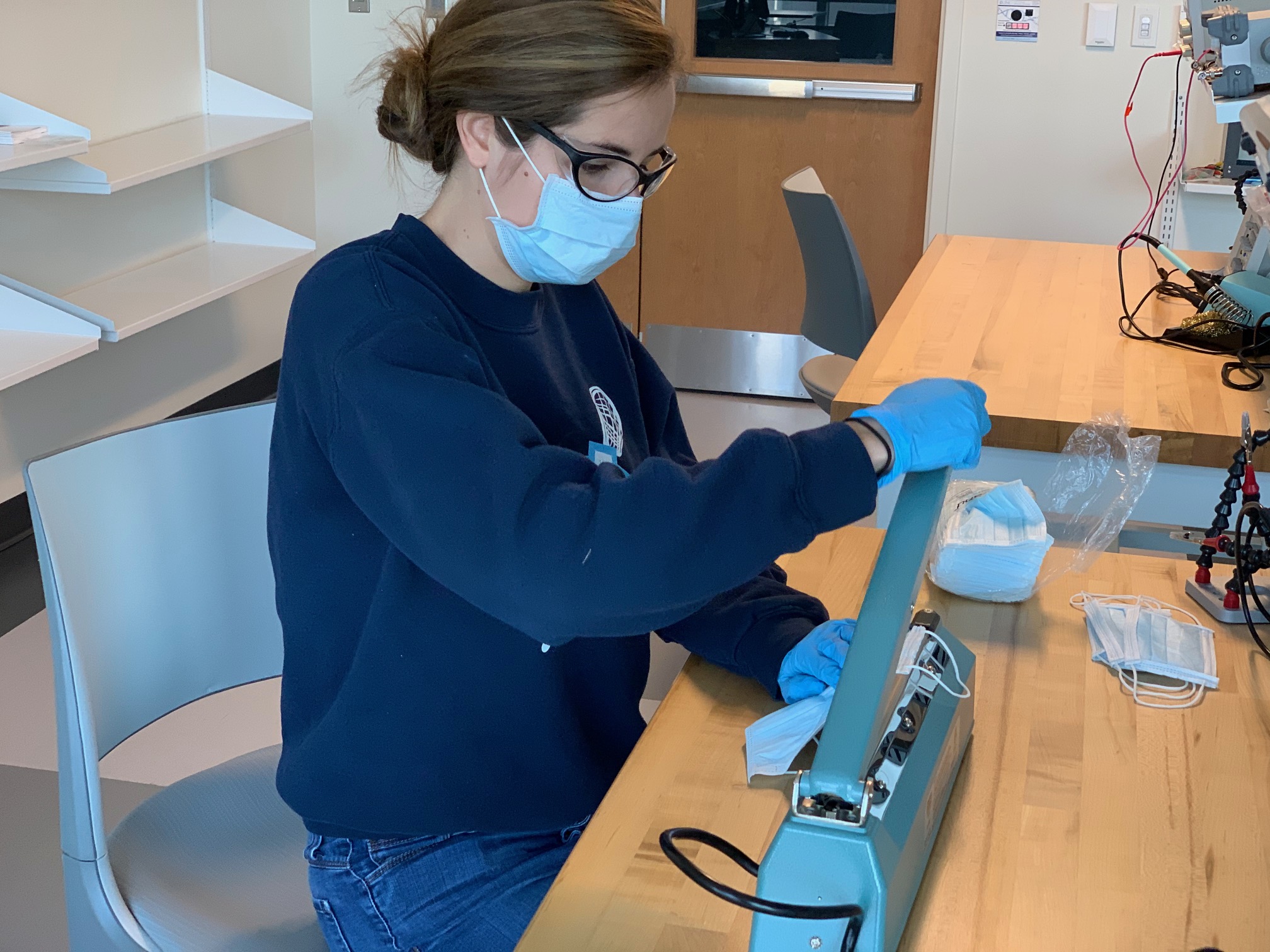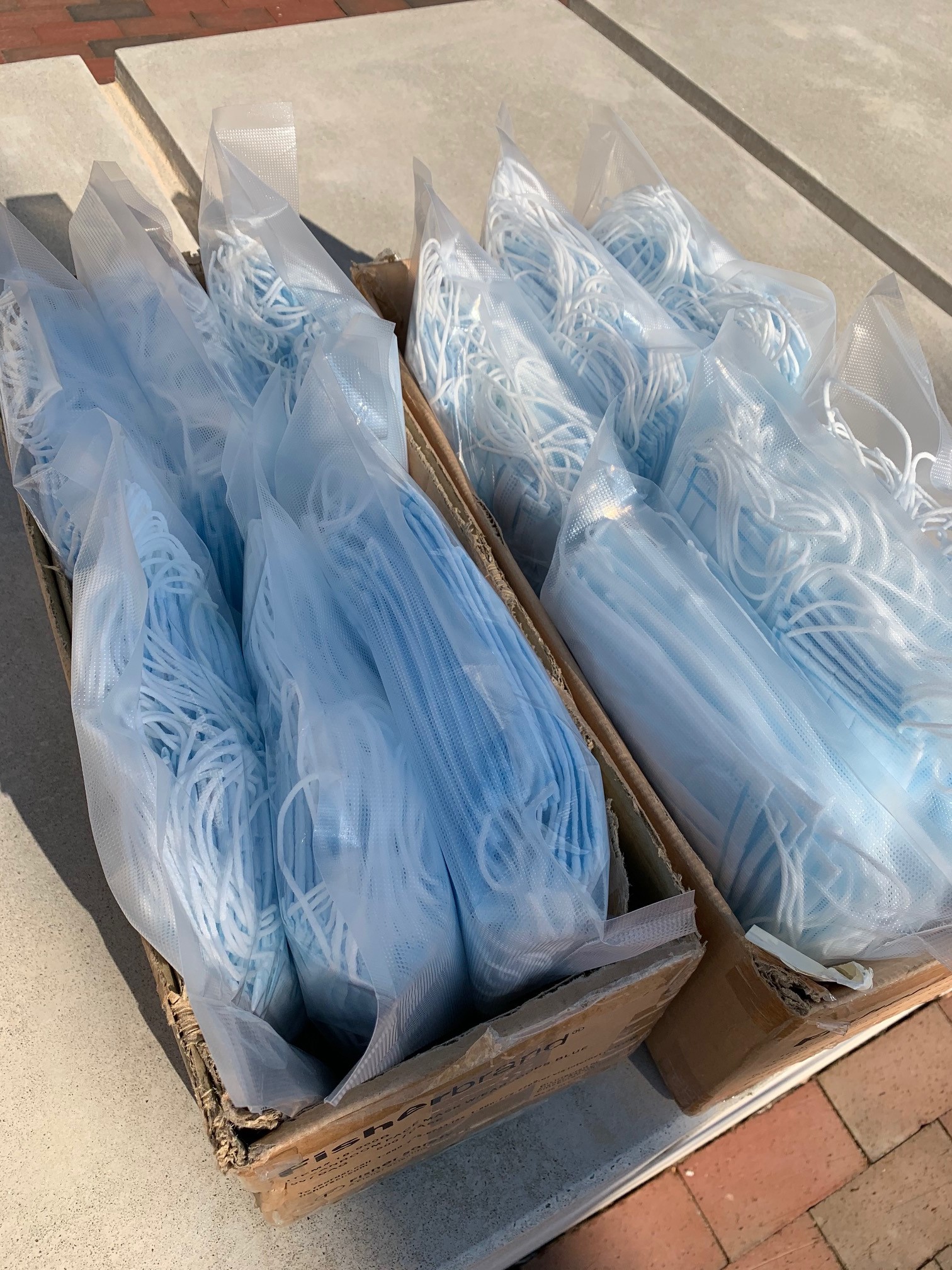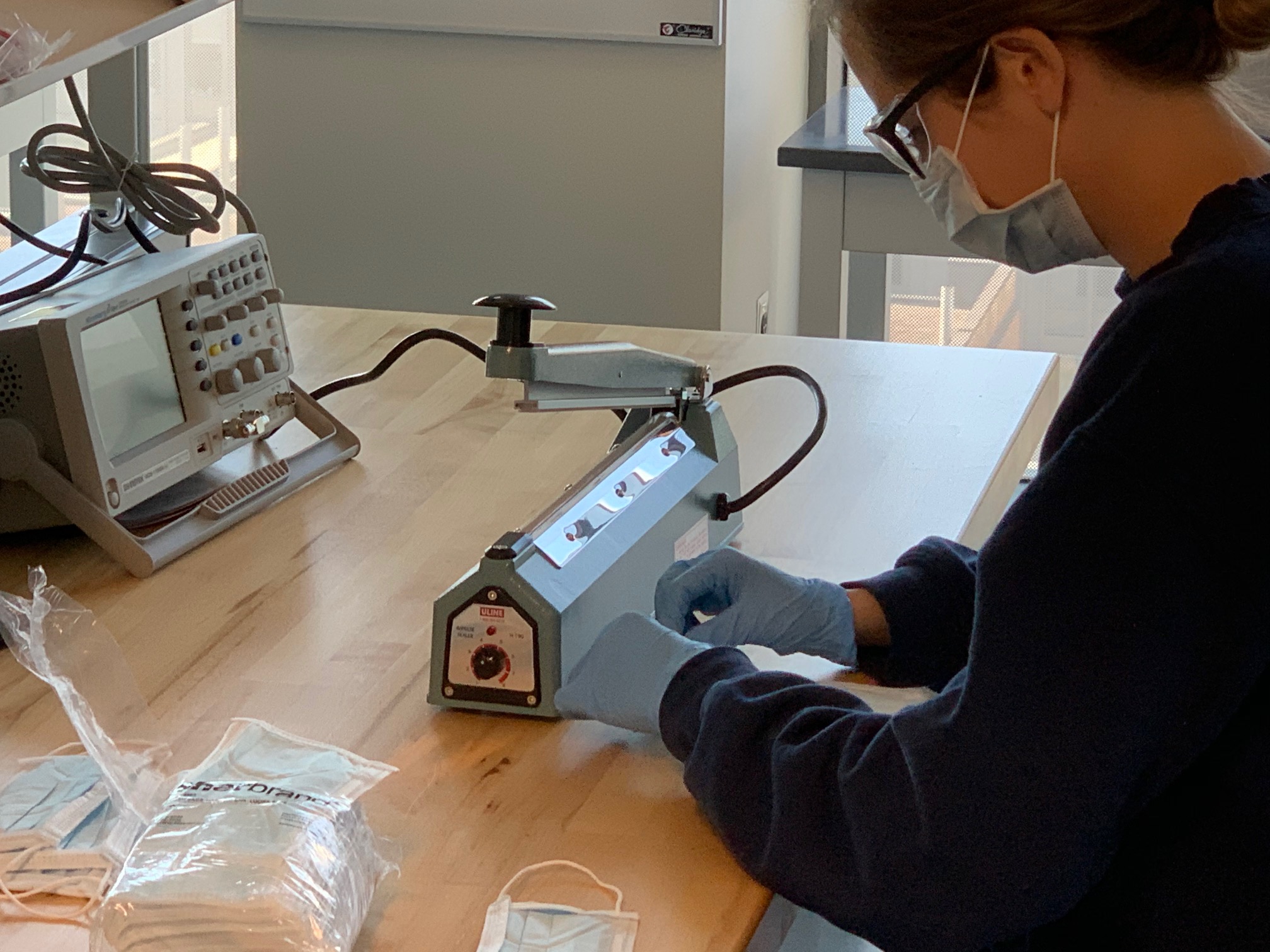To help address shortages of pediatric PPE due to the COVID-19 pandemic, the UNC/NC State Joint Department of Biomedical Engineering created task forces of students, faculty, and designers to make more than 1,000 pediatric masks for UNC Health in just over a week.

To help address shortages of pediatric PPE due to the COVID-19 pandemic, the UNC/NC State Joint Department of Biomedical Engineering created task forces of students, faculty, and designers to make more than 1,000 pediatric masks for UNC Health in just over a week.

April 23, 2020
Contact: Carleigh Gabryel, 919-864-0580, carleigh.gabryel@unchealth.unc.edu
CHAPEL HILL, NC – More and more students are answering the call to provide critically needed PPE for UNC Health. The latest efforts – initiated by Carol Lewis, vice president of the Center for Health Innovation – include biomedical engineering (BME) students from both UNC and NC State who are crafting pediatric face masks.
Paul Dayton, PhD, interim chair of the UNC/NC State Joint Department of Biomedical Engineering, is coordinating teams of engineers to tackle several COVID-19-realted projects, including addressing the need for smaller masks to fit patients at the NC Children’s Hospital.
“The COVID-19 crisis is unprecedented and scary, but it’s been incredible to see so many scientists, engineers, and physicians that have immediately focused their efforts to solve urgent needs in medicine,” said Dayton, a member of the UNC Lineberger Comprehensive Cancer Center. “The BME department is well-positioned to help in these needs, and we are enthusiastic about working with our colleagues at UNC Health, FastTraCS, BeAM (the makerspace), as well as other departments and local industry to make an immediate impact in improving lives.”
 The pediatric mask design team was led by BME teaching assistant professor Devin Hubbard, PhD, lead design engineer at FastTraCS, a program at the North Carolina Translational and Clinical Sciences (NC TraCS) Institute focused on spurring innovation from existing research and identifying unmet needs at UNC Hospitals.
The pediatric mask design team was led by BME teaching assistant professor Devin Hubbard, PhD, lead design engineer at FastTraCS, a program at the North Carolina Translational and Clinical Sciences (NC TraCS) Institute focused on spurring innovation from existing research and identifying unmet needs at UNC Hospitals.
“It was requested that we find a way to be able to make these pediatric masks using adult surgical masks, along with material that was already available in the hospital,” Hubbard said.
Hubbard’s design team, led by BME student Emiley Joyce and FastTraCS engineer Nicole Wiley, developed a way to repurpose adult sized masks into pediatric sizes by folding and then thermally re-bonding them.
“This is exactly what I wanted to do by getting this kind of degree,” Joyce said. “We’re finding ways to solve problems that have an impact on people in a positive way.”
Two shifts of students, including Christian Griffith, Phil Durham, Lindsay Sullivan, Joanna Lee, Ryan Chen, Kyle Meek, and Anthony Kostov, worked in the BME department design lab while practicing safe physical distancing measures, to manufacture the masks according to the team’s design. Hubbard says it takes about one minute to make a pediatric mask.
The teams are working closely with UNC Health to make sure they have enough pediatric masks available.
 Students have made around 1,000 masks in just over a week and are prepared to make several thousand masks if needed.
Students have made around 1,000 masks in just over a week and are prepared to make several thousand masks if needed.
“The BME team has provided an invaluable resource for our pediatric patients in the Children’s Hospital,” said Benny L. Joyner, Jr., MD, MPH, chief of pediatric critical care medicine, vice chair of hospital inpatient services, and associate professor of pediatric critical care medicine. “Often, adult masks for small children are ill-fitting, and do not accomplish the intended goal. It is remarkable how quickly the team identified the issue, developed a prototype, refined it and delivered a much-needed finished product that is arguably as effective as what can be found on the market. We are inspired by the BME team’s flexibility, ingenuity, and generosity of time and talent.”